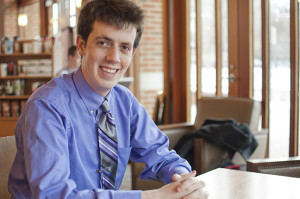Professor named chief economist for US department of commerce
When the White House called Susan Helper, she knew the offer was not one she could easily refuse.
The message, which happened a year and a half ago, contained an offer for the Case Western Reserve University economics professor to serve as a senior economist at the Council of Economic Advisers, an agency within the president’s office. She served in that role for a year, and was appointed this summer to serve as Chief Economist for the the United States Commerce Department.
Helper says that she didn’t apply for the first position, but was recruited out of the blue.
“I don’t actually know how it specifically happened,” Helper said “It’s a somewhat mysterious process. Every year they are looking for people to come and spend time to work on policies. They’re looking for people who have expertise in an area that is going to be important and that are flexible and are willing to be team players.”
Helper’s expertise comes in manufacturing policy and the impacts of collaborative relationships in business. Before receiving her first government appointment, the Harvard University educated professor co-authored a Brookings Institution paper about the effects of “reshoring”: bringing manufacturing jobs back to the United States.
In her position, Helper oversees 15 economists in the Department of Commerce who conduct research to help advise economic policy. Her group has already written reports discussing employment trends in science, mathematics, engineering, and technology fields, and examining the high monthly wages American manufacturing jobs offer newly hired employees despite having to compete with countries with lower labor costs.
Helper says that she has loved the opportunity to combine theory and policy, and that working in Cleveland helped prepare her for the position.
“Cleveland is a wonderful laboratory for understanding how the economy works and how things can work better,” Helper said. “Cleveland is big enough to be important on a national scale but small enough you can know people.”
She says that highlights of her experience in Washington have included attending an inaugural ball last year, and working with true public servants: individuals with “low pay who don’t get the publicity that they deserve.”
“There are books that come out about politics and the back-biting and that goes on, but there is also a core of very hard working people that want to do the right thing,” Helper said.
However, Helper did note that lobbyists do fit the stereotype.
While she is not serving as an official CWRU adviser during her time working at the capitol, Helper did emphasize the numerous “underrecognized” opportunities for young people in Washington. She says that students should consider Washington, D.C., when looking for internships or for recent graduates hunting for jobs.
“A lot of young people in Washington come to have influence very quickly,” Helper noted.
Helper is currently signed to a one year contract, but she says that it could be renewed for additional years. However, it is her plan to return to Cleveland and CWRU eventually. She still maintains her appointment at CWRU, and her house in Cleveland.

Mike McKenna is a senior biology and psychology student currently serving as The Observer's Executive Editor, after spending last year in the Director...

